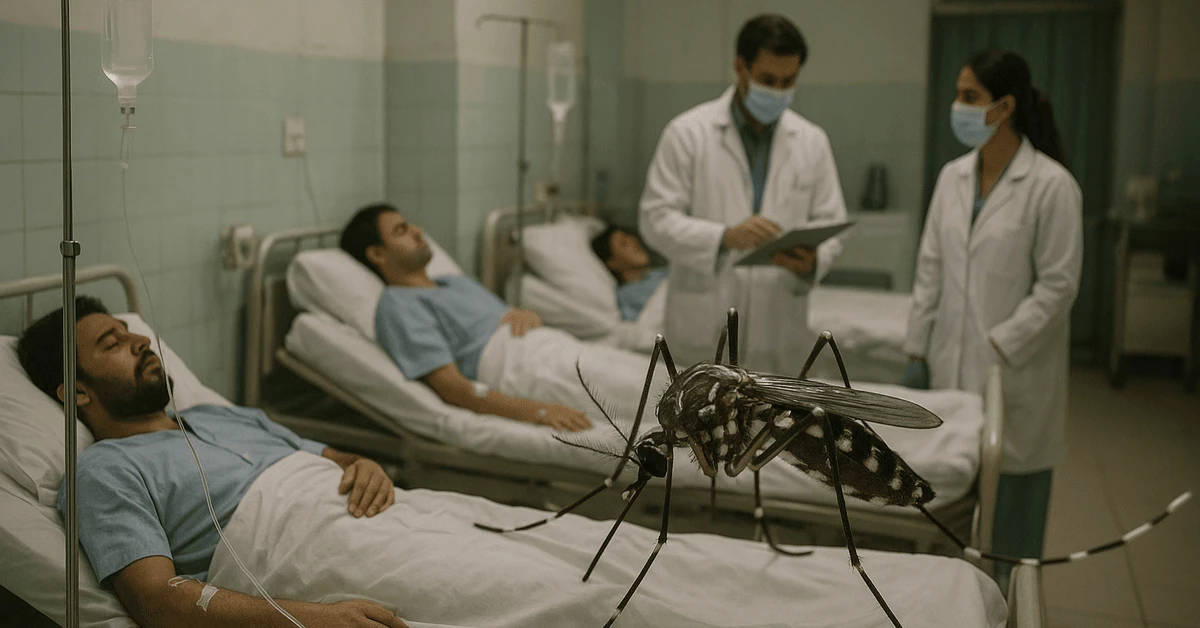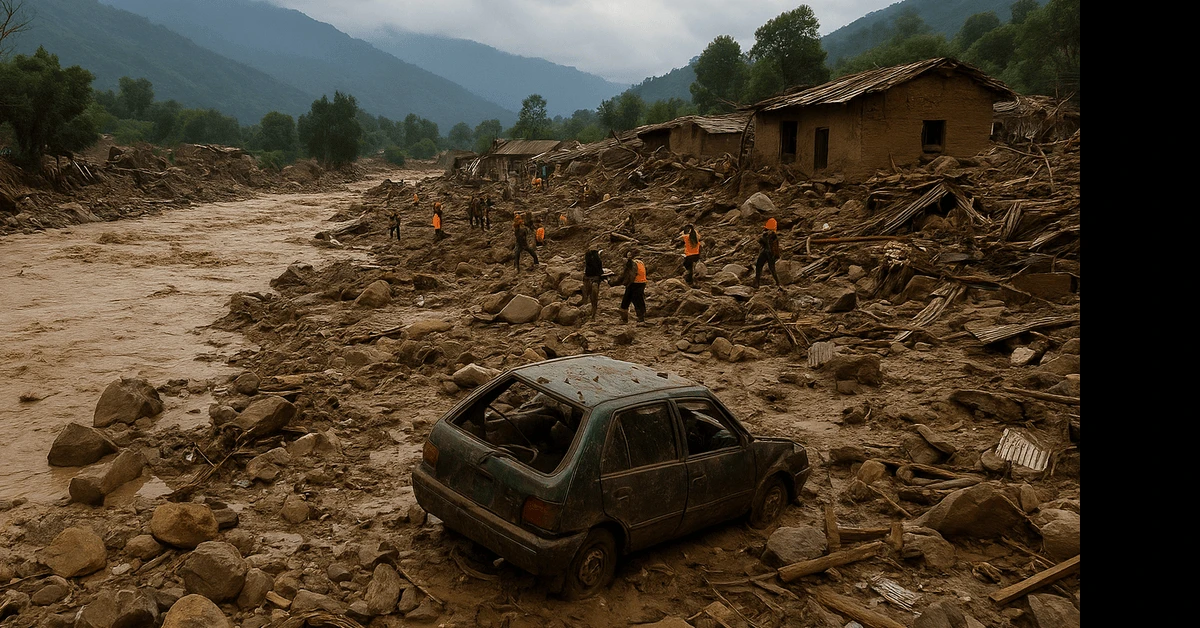Last Updated: October 9, 2025
Dengue Outbreak 2025: Will Cold Weather in December-January Bring Relief?

Dengue cases are once again surging across Pakistan in 2025, sparking widespread concern as hospitals report an increase in patients from every major province. With winter approaching, many are wondering: will cold weather finally bring relief? Or is this year’s dengue outbreak more resilient than ever? Let’s explore the full picture — from the latest statistics to prevention, cures, and what to expect in the months ahead.
Current Situation in Pakistan
As of October 2025, health departments across the country have reported a noticeable spike in dengue infections. In Khyber Pakhtunkhwa, over 1,200 confirmed cases were recorded in September alone. Cities like Charsadda, Mansehra, Peshawar, and Haripur remain hotspots. Punjab is facing similar challenges, with Lahore and Rawalpindi registering dozens of new cases daily. Islamabad recently reported its season’s highest daily figure — 56 new infections in one day. In Karachi, more than 550 confirmed cases have been counted so far, prompting an emergency vector control campaign.
Pakistan reported over 20,000 dengue cases in 2024, and experts believe 2025 may exceed that figure if temperatures remain mild. Local governments have intensified anti-mosquito drives, but public awareness remains crucial to slowing the spread.
Global Dengue Situation: Not Just Pakistan
Pakistan’s crisis is part of a broader global pattern. Bangladesh is also struggling, with over 50,000 infections and 200 deaths in 2025 — one of its worst outbreaks in a decade. Southeast Asian countries like Thailand, Indonesia, and the Philippines are also reporting increased dengue cases, linked to changing weather patterns and urban water stagnation. The World Health Organization (WHO) notes that dengue now affects over 100 countries, with 390 million infections globally every year — and climate shifts are expanding mosquito habitats further north.
Will Cold Weather in December–January Bring Relief?
Cold weather can indeed slow mosquito breeding and virus transmission — but not immediately or completely. The Aedes aegypti mosquito, which carries dengue, thrives in warm, humid conditions. When the temperature drops below 20°C, their activity and breeding decline sharply. However, Pakistan’s winter varies by region: southern areas like Karachi, Hyderabad, and Sukkur remain relatively warm, allowing mosquitoes to survive indoors or in shaded areas.
Health experts predict a gradual decline in dengue cases from late December onward, especially in northern and high-altitude regions. Yet, total eradication is unlikely — meaning preventive efforts must continue even during colder months.
Why Dengue Spreads So Fast
- Water accumulation from monsoon rains and poor drainage systems.
- Urban waste mismanagement — discarded tires, containers, and bottles trap rainwater.
- Climate change — longer humid periods, irregular rainfall, and milder winters help mosquitoes survive longer.
- Lack of community participation in cleanup and prevention campaigns.
How to Protect Yourself & Your Family
- Eliminate all sources of standing water (plant pots, containers, tanks, open drains).
- Use mosquito repellents or sprays, especially during dawn and dusk.
- Install window and door nets to prevent mosquitoes from entering homes.
- Apply natural repellents such as lavender oil, citronella, or neem alongside medical repellents.
- Wear light-colored full-sleeved clothes that cover exposed skin.
- Keep indoor areas dry and clean, especially near bathrooms and kitchens.
Home Remedies and Natural Recovery Boosters
There is no specific cure for dengue, but supportive care and natural remedies can ease symptoms and aid recovery:
- Papaya leaf extract — helps raise platelet count naturally.
- Giloy (Tinospora Cordifolia) — strengthens immunity and reduces fever.
- Fenugreek tea — relieves fatigue and lowers body temperature.
- Turmeric milk — anti-inflammatory and helps improve metabolism.
- Vitamin C-rich foods — oranges, guava, and lemons strengthen immune response.
- Hydration — coconut water, ORS, and fresh juices to prevent dehydration.
Diet: What to Eat & What to Avoid
Eat: Fresh fruits, leafy vegetables, soups, boiled eggs, and nutrient-dense foods that help the body recover faster.
Avoid: Fried, oily, and spicy foods, caffeine, and sugary drinks, which can aggravate symptoms or slow recovery.
When to See a Doctor
- High fever persisting for more than 3 days.
- Severe headache, joint pain, or pain behind the eyes.
- Bleeding gums, vomiting blood, or black stools.
- Persistent vomiting or dehydration.
- Extreme fatigue or abdominal pain.
Pakistan vs. Global Per Capita Comparison
Pakistan’s 2024 total of 20,000 dengue cases translates to roughly 1 infection per 12,000 people. In contrast, Bangladesh’s 50,000+ cases in 2025 mean 1 infection per 3,400 people — over three times higher. Urban population density and humidity play a major role in this difference, making city planning and sanitation key to long-term dengue control.
December–January Forecast
According to climate and health experts, dengue transmission will likely slow down in December and January due to colder nights and lower humidity. However, residual mosquito populations indoors may persist in warmer areas. Therefore, households must remain vigilant through consistent cleaning, use of repellents, and avoiding stagnant water even after cases start declining.
Conclusion
The dengue outbreak of 2025 is one of Pakistan’s most widespread in recent years. While the approaching winter brings hope for a gradual decline in cases, prevention and public health awareness are still the most effective weapons. Clean surroundings, proper nutrition, and timely medical care can ensure safety until the country finally sees relief from this mosquito-borne menace.
FAQs
Q1. Will dengue end completely during winter?
Not entirely. It usually declines but can continue in warmer indoor environments or southern regions.
Q2. Can I get dengue twice?
Yes. There are four dengue virus strains, and infection from one doesn’t guarantee immunity to others.
Q3. Does cold weather kill mosquitoes instantly?
No. It reduces their breeding speed and lifespan but doesn’t kill all, especially in mild winters.
Q4. Which foods help in dengue recovery?
Foods rich in Vitamin C, iron, and proteins — like oranges, guava, boiled eggs, soups, and papaya leaf juice — are helpful.
Q5. When should I go to the hospital?
If your fever persists for more than 3 days, or you experience bleeding, vomiting, or dehydration, consult a doctor immediately.
You May Also Like:

HUM News Anchor Arooj Fatima Dies after Dengue Complications...

How Drones Are Changing Disaster Relief in Pakistan: Current Deployments, Case Studies, and a Roadma...

Vivo Y400 Price, Specs & Review – The New Budget Powerhouse of 2025...

Biological Sex Testing & Trans Athlete Ban: How Women’s Sports Policies Are Rapidly Changing in 20...

OPPO Find N5 Price in Pakistan, Specs, Features & Review 2025...

OPPO Reno14 5G Price, Specs & Features in Pakistan (2025)...

Samsung Galaxy A07 Price in Pakistan & Full Review 2025...

